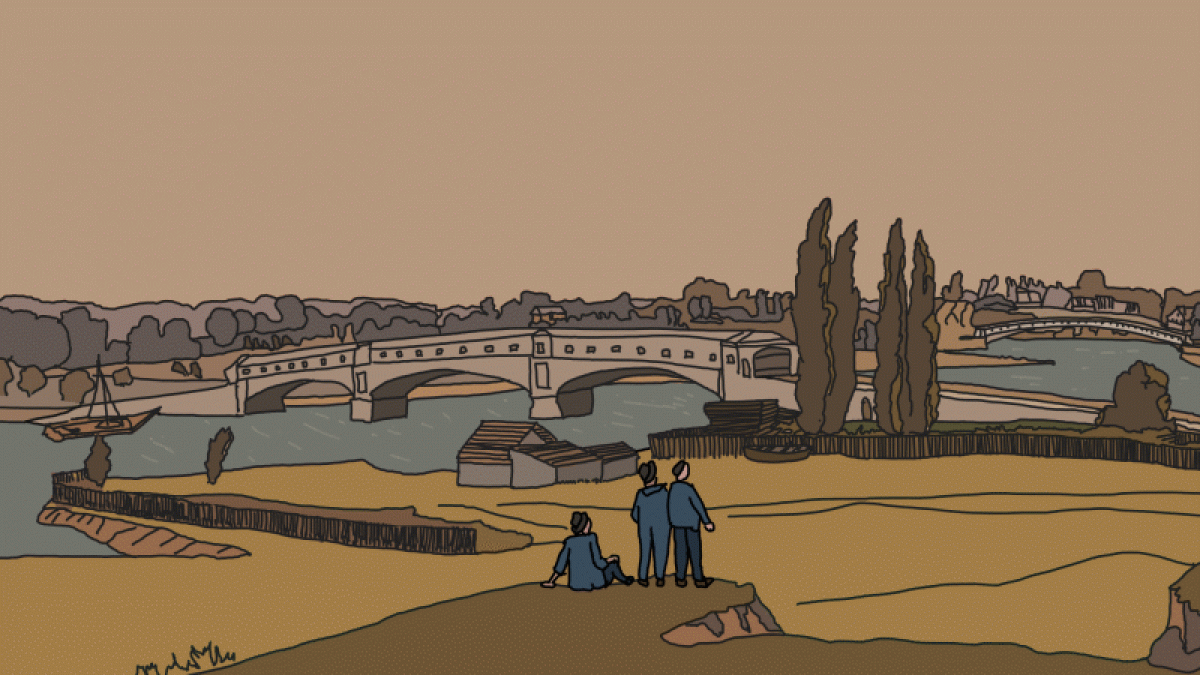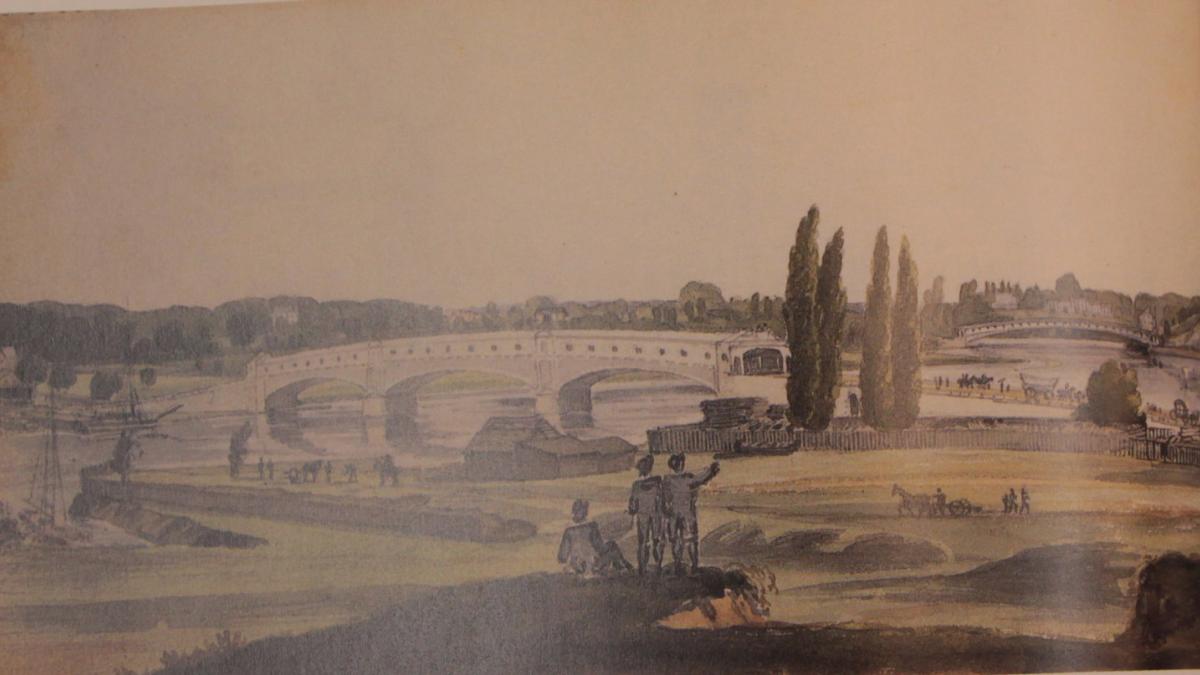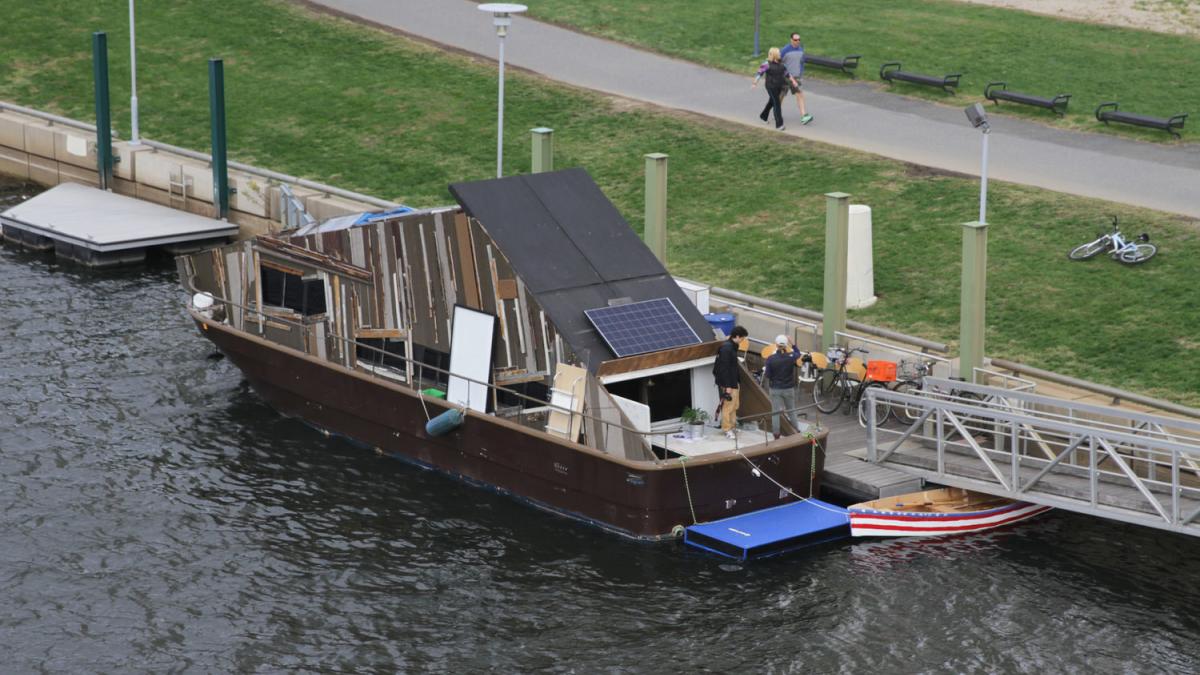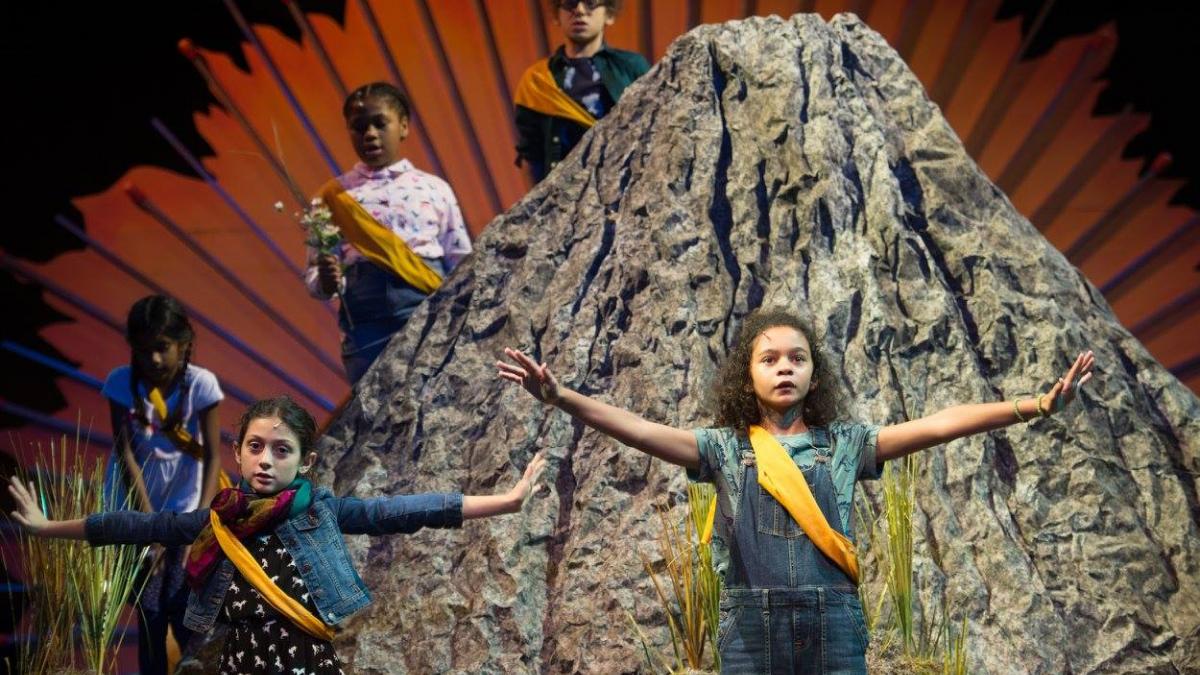PPEH Announces New Mellon Artist-in-Residence and Call for "Ecotopian Toolkit" Contributors
January 19, 2018
Paul Farber
The Penn Program in Environmental Humanities (PPEH) fosters interdisciplinary environmental collaboration and scholarship at the University of Pennsylvania, in Philadelphia, and beyond. Among our core commitments is arts-driven inquiry into place: our campus, the City of Philadelphia, the Delaware River watershed, and beyond. Since 2015, when the Program began, we have worked with artists, alongside scientists, humanists, and civic organizations, to engage a variety of publics around environmental and climate concerns.
The Penn Program in Environmental Humanities (PPEH) fosters interdisciplinary environmental collaboration and scholarship at the University of Pennsylvania, in Philadelphia, and beyond. Among our core commitments is arts-driven inquiry into place: our campus, the City of Philadelphia, the Delaware River watershed, and beyond. Since 2014, when the Program began, we have worked with artists, alongside scientists, humanists, and civic organizations, to engage a variety of publics around environmental and climate concerns.
This year, we are pleased to announce our Mellon PPEH Artist-in-Residence, Jacob Rivkin, and a call for artists to contribute projects to our expanding Ecotopian Toolkit.
Rivkin’s Floating Archives houses archival photographs. He animates them—stirring up historical sediment and so enlivening the present. A sculptor and animator, Rivkin explores “how we experience and internalize landscape.” He is a former Fulbright Fellow, a current Visual Arts Fellow at the Fine Arts Work Center in Provincetown, and he teaches courses in Fine Arts at the University of Pennsylvania. He previously worked with PPEH on BioPool for the inaugural Ecotopian Toolkit hosted at Bartram's Garden in spring 2017, a hybrid installation dubbed “a giant Brita filter for the Schuylkill River” by the Philadelphia Inquirer.
Previous artists-in-residence with PPEH include Mary Mattingly, who developed WetLand as a floating lab for experiments in sustainability at Bartram’s Garden on the lower, tidal Schuylkill River; and the collaborative team of Troy Herion, Mimi Lien, and Dan Rothenberg, whose hybrid musical theater production A Period of Animate Existence was workshopped during their residency before its world premiere headlining Philadelphia’s Fringe Festival.
According to Rivkin, “Floating Archives offers residents of Philadelphia the opportunity to consider the embedded histories in each landscape. Every sidewalk, landmark, and natural feature contains a narrative that turns each location from a space to a place. As the floating platform moves through the Schuylkill River, animations based on archival material are shown in alignment with the places they reference. The past and present meet for a doubling of both history and landscape.”
Rivkin’s residency engagement includes working with PPEH public research seminar participants and students this Spring, and will culminate during the PPEH-collaborative Schuylkill River & Urban Waters Research Corps' (@schuylkillcorps) June On-Water Intensive. Rivkin’s work will also feature on land this spring in Grid and Flow at the Science History Institute (formerly Chemical Heritage Foundation). With PPEH support, Floating Archives will continue on water into the summer, with projections along the river between Bartram’s Garden and the Art Museum.
CALL FOR ECOTOPIAN TOOLKIT CONTRIBUTORS
In tandem with Floating Archives, we are inviting artists to contribute artworks to the Ecotopian Toolkit, an ongoing public project that began one year ago. Documentation of last year’s tools, developed as tools for WetLand, resides in the living public archive of the Schuylkill River & Urban Waters Research Corps. Previous Toolkit contributions include: a field guide, illustrated maps, water experimentation tools for youth, habitat pods, sculptural provocations, and on-water floating filtration system. Proposals for this year’s awards for tools will retain an engagement with floating on/ sinking in/ and otherwise living with urban waters; and they will similarly explore what it might mean to face contemporary ecological challenges with critically attuned and creatively oriented tools.
Via a juried process, PPEH will select 5 artists to participate this year, and artists’ projects will be archived and included in all Toolkit initiatives, highlighted in a public demonstration led by the artist, and documented on the PPEH website. Each artist/team will be awarded a $1,000 prize.
Proposals developed by individual or teams, working across the arts and sciences, will be reviewed around the following possible tracks:
- Explore past, present and future intersections of environmental knowledge
- Address present paradigms that attempt to integrate cultures of arts and science in labs, workshops, studios, and other exploratory spaces
- Consider how products of integrated knowledge are disseminated, shared, and advanced
- Propose tools that might be adapted and scaled by fellow citizen scientists and citizen humanists
- Suggest how anthropocene tools can reach and engage new audiences in partnership with galleries, libraries, archives, museums, and other public spaces
- Highlight data visualization and interpretation, especially in connection to our ongoing Data Refuge Stories project
- imagine connections and installations at PPEH partner sites (including Bartram’s Garden and Heinz Wildlife Refuge) and other potential hosts and collaborators in the Philadelphia area.
Artists may propose toolkit projects that could be built from scratch, refined from an existing prototype or working version, or adapted and advanced in new ways through this collaboration. Tool-making workshops and presentations will be rolled out during the late spring and summer of 2018.
Applications consist of a 500-word statement and include a brief bio/links to previous projects for each collaborator; they should be submitted through our portal. All materials will be evaluated by an interdisciplinary jury. Submissions are due by March 1, 2018; applicants will be notified by Mid-April, 2018.




